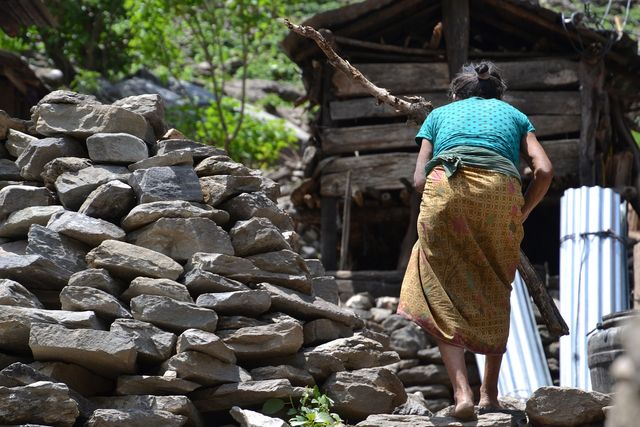21-year-old Parbati Bogati was found dead in a windowless “menstruation hut” in western Nepal, The New York Times and BBC.com report. Lal Bahadur Dhami, the deputy superintendent of the local police, said, “We suspect she died due to smoke inhalation and suffocation because she closed the door of the windowless hut and lit a fire on the floor for warmth during the night.”
Abiding by an ancient Hindu tradition known as chhaupadi, Bogati isolated herself in an abandoned house. Chhaupadi, meaning someone who bears an impurity, considers women’s menstruation to be unclean and a bringer of bad luck. During their periods or after having just given birth, women are banned from touching people and certain foods as well as entering temples, using communal water sources or kitchen utensils, under this practice. They are then relegated to small structures made of mud or stone
Many women say they observe chhaupadi because of social and religious pressures. Several cases of suffocation have been reported and a teenage girl died after being bitten by a snake. Reports of sexual assault are also common. Nepal’s Supreme Court banned chhaupadi in 2005 and in 2017 the practice was criminalized. Anyone who makes a woman observe chhaupadi faces a three month jail sentence and a $30 fine, the BBC reports.
However, activists say police are not enforcing the law and the practice remains widespread in rural areas like Bogati’s. Last month, 35-year-old Ambra Bohara died, along with her 7- and 9-year-old sons, in an apparent suffocation from lighting a fire in the hut to keep warm from the harsh Himalayan winter. Nobody has been arrested for their deaths, The New York Times reports. The incident did propel locals to destroy chhaupadi huts around their village.
Activists say that they plan to continue destroying the huts but are encountering a great deal of resistance, and lawmakers don’t see the current situation improving anytime soon. When a woman’s bodily autonomy has been so deeply entwined with her religion and its traditions for centuries, changing the current state of affairs seems like a Sisyphean effort. Abortion rights in the US are constantly under attack, with state laws favoring certain religious views over others. Religious moralism and women’s bodies have never been mutually exclusive. But we must keep striving to eliminate the correlation between a woman’s agency over her body and notions of ethics that stem from oppressive religious beliefs.
Header photo by lanur via Pixabay
More from BUST
This Louisiana Abortion Case Could Tell Us About The Future Of Reproductive Rights In America
This Interactive Map Shows You How Hard It Is To Get An Abortion In Each State


